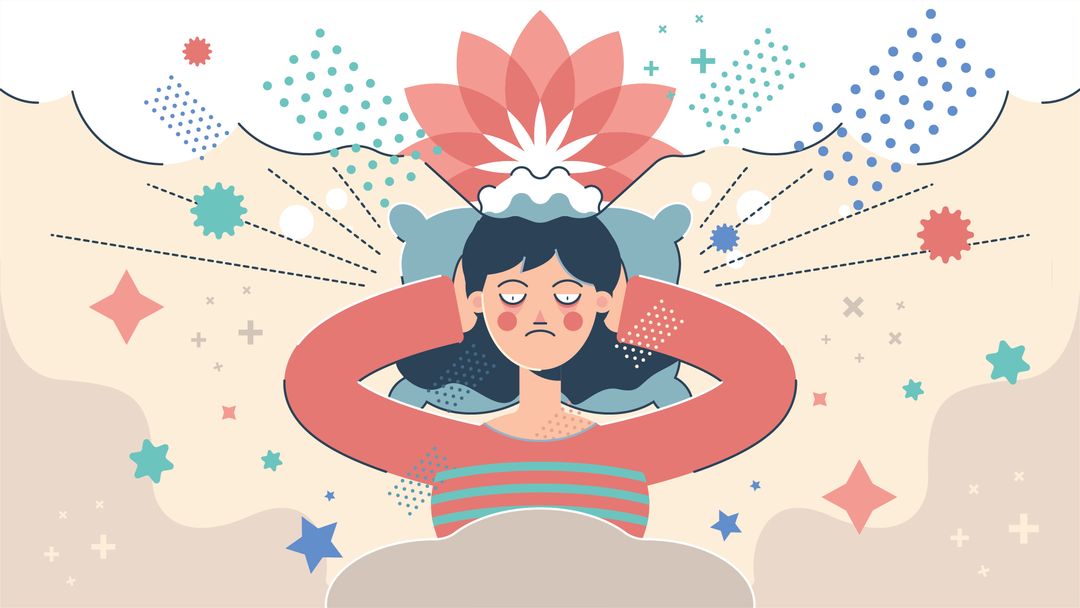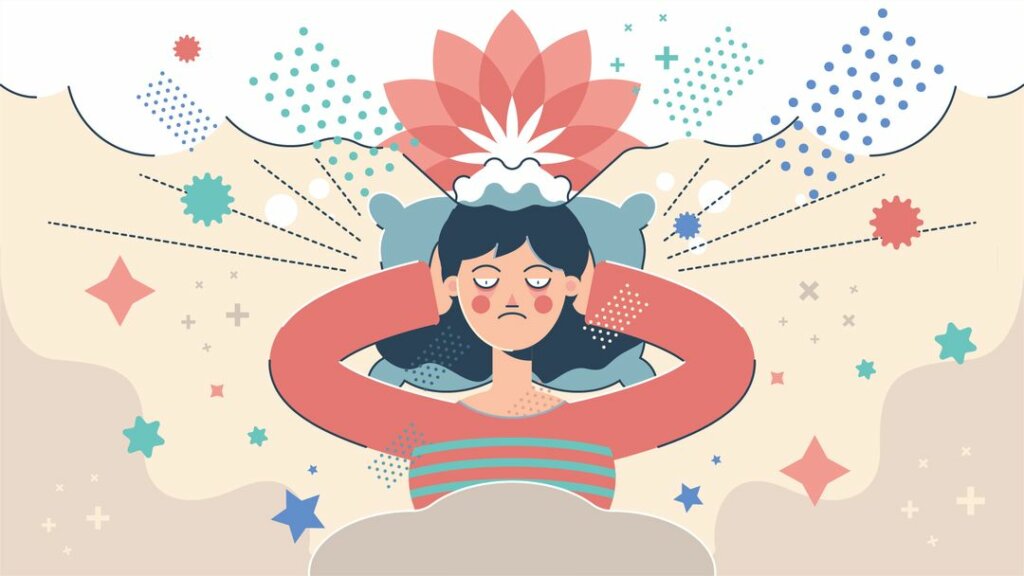Imagine the feeling of coming home after an exhausting day, and finally being able to dive into your bed, slip under your uber comfortable covers, and doze off to dreamland. Sounds just like heaven, doesn’t it?
But what if, just as you’re starting to fall asleep, you suddenly hear loud banging, cymbals clashing, and bombs and guns going off? Nope, you’re not in the middle of a warzone or a rock concert; but that’s what the sensation of falling asleep friggin’ sounds like to you.
This very disruptive and very annoying sleep disorder is what people with exploding head syndrome (EHS) experience not only when they fall asleep, but sometimes also when they wake up in the morning. So what exactly is EHS and what can you do to manage it?
Can’t sleep and don’t know why? Check out our Complete Guide to Sleep Disorders with symptoms, causes, and treatments on over twenty types of sleep disorders.
Quick Facts – Exploding Head Syndrome
Frequency: Roughly 10% of the general population
Risk Factors: Age of 50 and up, being female, substance abuse, pre-existing sleep disorders such as sleep paralysis
Nature: Physical
Treatment: Medication, sleep hygiene improvement, relaxation techniques
Symptoms – Exploding Head Syndrome
Contrary to what its name might suggest, exploding head syndrome or EHS is actually painless and causes no physical effects on the brain (no injury or swelling).
The sounds heard during an EHS episode are auditory hallucinations and they usually happen either on the onset or offset of sleep, i.e. when you’re about to fall asleep, and when you’re just waking.
Below is a list of the commonly observed behaviors among those who experience episodes of exploding head syndrome.
- Hearing loud, disruptive noises, often lasting for just a few seconds, just as one is drifting off into or out of sleep
- Said noises are imagined and are not associated with any physical pain
- Bright, flashing lights may sometimes accompany these loud sounds
- Awakening with feelings of fear and distress, resulting in shortness of breath
Causes – Exploding Head Syndrome
There is no known cause as of yet for exploding head syndrome or EHS. And because it’s a rare sleep disorder that does not make a significant impact on the person’s health or sleep quality, a lot of cases are unreported and most do not seek treatment for it.
That said, researchers do have theories about possible factors that increase the likelihood of the development of EHS. Below is a list of conditions that sleep specialists hypothesize are linked to EHS.
- Seizures in the temporal lobe
- Sleep deprivation
- Stress and extreme fatigue
- Post-traumatic stress disorder (PTSD) and other mental health conditions
- Ear-related conditions or dysfunctions
Treatment – Exploding Head Syndrome
In general, exploding head syndrome is a benign disorder, and as such, patients do not really seek treatment for it, even as they continue to experience its symptoms. Exceptions, of course, are when the reported symptoms indicate an underlying disorder, and when the episodes cause severe sleep deprivation.
While exploding head syndrome has neither a known cause nor a specific cure, there are ways to help you manage its symptoms. Below are a few of them.
- Medication – In severe cases, antidepressants such as clomipramine, a tricyclic antidepressant, may be prescribed.
- Sleep hygiene improvement – Getting ample sleep can help minimize the severity and frequency of EHS episodes.
- Relaxation techniques – If it is observed that EHS episodes occur at times of heightened stress and/or fatigue, the American Academy of Sleep Medicine recommends techniques like meditation, light yoga, breathing exercises—whatever makes you feel more relaxed.
How You Will Overcome Exploding Head Syndrome
We know that being awakened by very loud sounds can be both stressful and scary, even more so if you find out when you wake up that it was all in your head.
Still, there’s no need to panic! What you’re experiencing with exploding head syndrome is harmless and painless, and you don’t even need to seek further treatment unless it leads to significant disruption of sleep, or if you feel an underlying condition might be causing these episodes.
The American Sleep Association sleep study recommends getting a minimum of 6 hours of sleep every night so that sleep deprivation can be ruled out as a cause. As with any sleep disorder, it’s best to consult a sleep specialist so they can analyze and monitor your sleep patterns and help you get quality, explosion-free sleep.
Did you know?
This article is part of our Complete Guide to Sleep Disorders – A resource that will help you get your quality sleep back. Click here to learn more about sleep disorders, their causes, symptoms and how to overcome them.



